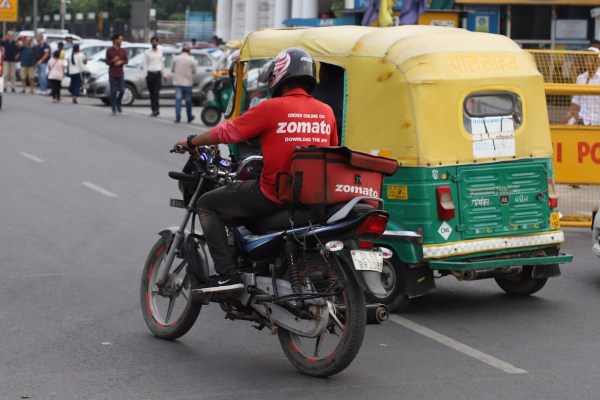You’ve heard about — and depending on where you live, probably tried — having startups deliver grocery to you in 10 minutes. But what if the same experience could be extended to hot, freshly prepared lunch and dinner? India’s Zomato, which has struggled to deliver grocery in 10 minutes in the past, and lately profits to its shareholders, seems juiced up to make that happen.
The company, which also once touted using deliveries by drones, said today starting next month it will begin delivering food in 10 minutes in its home city of Gurugram in what appears to be a first by any food delivery firm across the globe. The company is calling this new service Zomato Instant.
Zomato insists that it won’t pressure or penalize its delivery partners to ensure a delivery in 10 minutes. In fact, the publicly listed company says its delivery partners won’t actually know that those deliveries are supposed to be shipped in 10 minutes. “Time optimisation does not happen on the road, and does not put any lives at risk,” Deepinder Goyal, the chief executive of Zomato, wrote in a blog post.
“The fulfilment of our quick delivery promise relies on a dense finishing stations’ network, which is located in close proximity to high-demand customer neighbourhoods. Sophisticated dish-level demand prediction algorithms, and future-ready in-station robotics are employed to ensure that your food is sterile, fresh and hot at the time it is picked by the delivery partner,” he added.
The announcement comes days after Zomato reached an agreement to acquire Blinkit, another loss-making firm that pivoted to instant grocery delivery last year.
“This is one of the biggest endeavours towards our mission statement of “better food for more people,” Goyal wrote today.
Zomato has previously attempted its hands in the 10-minute grocery delivery space. Its acquisition of / merger with Blinkit is likely to give it access to scores of dark stores that can deliver the results. That’s the bull case for the company, which competes with Swiggy, whose private market valuation recently surpassed Zomato’s market cap.
On the other hand, Bernstein analysts and many investors say that grocery delivery in 10 minutes doesn’t make sense and isn’t sustainable. Two such startups shut down earlier this month. So food delivery, where you can’t fill up dark stores with ready-to-go inventories, might be even more difficult to pull off for a firm that can barely deliver anything in crowded Bengaluru in half an hour.
“This is absurd! It’s going to put undue pressure on the delivery personnel, who are not employees & who have no benefits or security, who have no bargaining power with Zomato. I have raised this in Parliament & have written to the Govt. Will pursue this further,” said Karti P Chidambaram, a Member of Parliament, adding that he believes gig-economy startups should be regulated.
